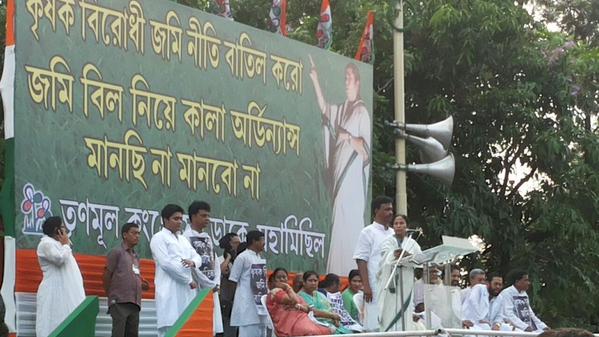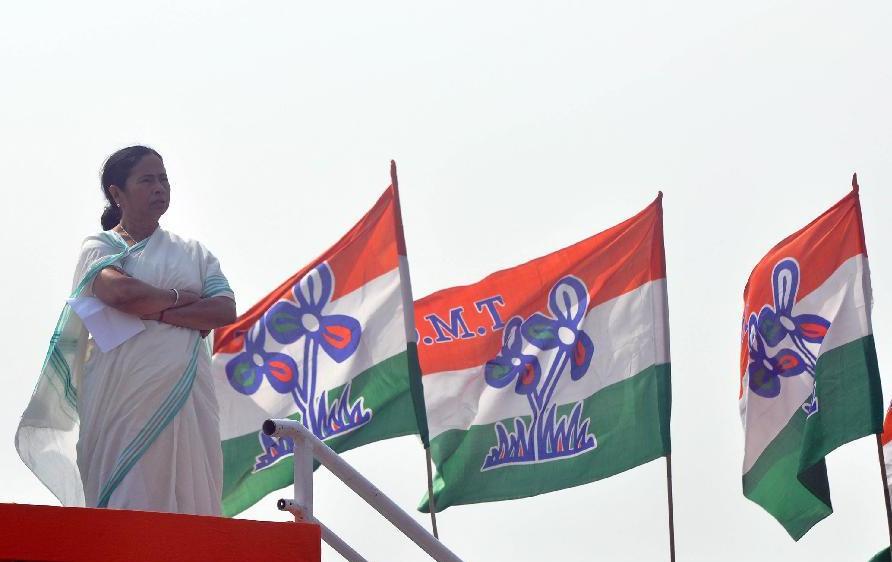Full transcript:
Deputy Speaker Sir,
I hope you will be as patient with me, as you have been with our Hon’ble ex Prime Minister. Sir, after Hon’ble ex Prime Minister of India, whatever he had to say, he has said it very elaborately. In fact, my esteemed colleague, Sri Kalyan Banerjee spoke yesterday, not only on the legal points but also on the substantial points of this Bill.
At the outset, let me tell you, hum is Bill ka humara party ke taraf se zor shor se virodh kar rahe hai. Aur virodh karne ke sath sath yeh pata nahi chal raha hai ki hum inke shukriya aada kare, inka abhari hoye, ki inko bahut bahut dhanyavad de ki yeh Bill laye. Ab yeh baat hum kyun kahe rahe hai? Is Bill se aap ne kaya kiya hai hum bataye, aap pure Opposition ko ek sath unite kar diya hai. Aur is Bill ke madhyam se, aap dil pe haat rakkhe kahiye, aap ka andar main bhi ek disunity a gayi hai. Kyunki zyada tar ke lok iske virodh main hai.
Sir, it is a very simple question. Aap ke niyat me humein koi shaak aur shanka nehi hai. Aap jo kar rahe hai, aap ki samajh bhi wohi hai ki is se shayad desh ka bhala ho. Aap ke niyat me hume shaak nehi hai ki aap kisi ek punjipati ko zyada paisa dilana chahte hai, yeh humara dil me koi shanka nehi hai.
Sir, it is a very basic question. Clause by clause everybody has talked about and they have demolished this. I am not going to go on that, I am going to talk about substantial process of democracy. I am going to tell you in a very patient manner and will not get agitated about it but the fact is this is for all of us. For this country and the future generation which is going to come.
Sir, ismein baat bahut simple hai. It is the right of an individual against the might of the State. Sir, aaj bhi Narita Airport me ek kisan baitha hua hai. Sir, iske mudde bahut bahut simple hai ki aap kis prakar se kanun banana chahate hai uski prakriya keya hai. What is the process of law making?
I am hitting at the basic process of law making. Even the Hon’ble President of India made an observation this is not the way that you come up with ordinance after ordinance.
Sir, does the stakeholder have the right to understand what is happening or we just want to bulldoze a bill? For What? Why? What is the big hurry, like everybody has said?
Sir, have you circulated this draft to the stakeholders? Have you consulted the people who are going to get affected? Have you consulted the political parties? India means 1.2 Billion people we have always been talking about. The poor kisaan, the Bill is so complicated he will take some time to understand the Bill.
Sir, where is the draft circulated? Even before circulating the draft you have brought the Ordinance. Sir, I want to take it to a Committee of Secretaries in January 2014. The Committee of Secretaries had pronounced with due diligence and permission of the Government that, henceforth whatever laws comes into being, has be circulated in a draft form, there has to be a wider discussion and after that only the Bill will be presented and will be debated on.
Sir, I just want to take you through the border points. We all are in Parliament. I started my career in public life with consumer protection. In consumer protection Sir, what happens, some factual stuff – ki ek cheej ka ishtahar hum karte hai, we advertise for one thing and we give a product which is just the opposite. Toh kya hota hai? Toh hum bolte hai ki yeh dhokadhari hai ki apne ishtihar toh is cheej ka diya tha?
I am not going to shout at all. They must have patience. This is democracy, you can’t shoot me down. Please understand, yaha na Ravan ki chali hain, na toh Duryodhan ki chali hain, na toh Kansa ki chali hain. Yaha kissi ka nahi chalta hai, yeh sun ke rakhiye aap.
Sir, humne ishtehaar ki baat ki.
I am coming on a basic document Sir, and what is the basic document? Please I would urge the members to listen very carefully. This basic document is a Manifesto which is our ishtehaar, we go to the voters with the basic document called the Manifesto. And with your permission I will take two minutes to read the Manifesto.
It says, ‘In encouraging the production of cereals and discouraging the conversion of fertile farm lands for dubious industrial projects.’ It says, ‘land acquisition for infrastructures in farmer’s interest will be protected. The Centre and the State Governments for long have acquired land through an opaque process, to hand it over to the private parties under the umbrella of public purpose. The UPA Government has approved 572 Special Economic Zones (SEZs) that cover 50,000 acres (three times the size of Singapore). This is clearly absurd and spells disaster for the farming sector.’
‘The BJP will adopt a National Land Use Policy which will protest the interest of the farmers, the implementation will be monitored by the National Land Use Authority which will work with the State Land Use Authorities to regulate and facilitate land management. The powers and functions of the National Land Use Authority will be similar to that of other regulatory authorities. The BJP will bring about amendments for an existing law. The BJP will not allow the conversion of fertile farmland for industrial, commercial projects or for Special Economic Zone. Acquisition of land for industrial use will be addressed after careful scrutiny of Parliament and Standing Committee of the Parliament.’ Sir, it says, ’It will be addressed by careful scrutiny of Parliamentary Standing Committee Report and forcing the need to protect the farm sector after duly discussing with the stakeholders.’ This is your Manifesto and I am afraid that you are going totally against your Manifesto.
Sir, I remember if there has been a private company and said, that ‘I am going to sell you this’ and he sells something absolutely opposite of that, then we know what would have happened. I am not going to use any harsh words. I am totally as you are, interested in the farmland.
Sir, I will take some more time because this country is of Mahabharata, this country is of Ramayana, and this country is of Guru Granth Sahib and Quran Sharif.
I would just take you to the days of Mahabharata Sir. When Pandavas asked to Kauravas, ‘give us little land, we do not want anything, this our land too.’ Kaurava said, ‘Sui ki nokh tak ki zameen nahi denge. Aap ko ladai karni hain toh kar lijiye .’
Toh ladai toh farmers karenge. Woh tayari aap ki honi chahiye.
Now sir, let me conclude.
Sir, take the case of corporate sector. I have nothing against them. Take the case of a very beautiful club in the heart of Delhi, called Delhi Golf Club. I also go there to play golf. Now, that zamin belongs to the Government. Yeh Sarkari zamin hai. Toh humara ek dost keh rahe the, ki aap virodh kyun kar rahe hai is Bill ka? Toh humne dost ko kaha, yeh to sarkari zamin hai, toh kal uth kar agar sarkar kehti hai, ki is Delhi Golf Club main hum ek AIIMS ka building banana chahte hai, aur golf ko bandh karna chahte hai, tab dekhiye maza kya hota hai. Just as a test case, aap le lijiye, ki aap yeh kar sakegi ki nehi? Yadi aap woh kar sakte hai, toh hum bhi kahenge ki humari bhi manzuri hai.
Aakher mein hum yeh kehte hai ki, aap zara meherbani karke ek sher suniye. Sir, yeh kaya hota hai na, hum jab idhar a jata hai, toh hum khud ko bhagavan samaj lete hai, khuda samajhte hai,ishwar samaj lete hai. Hum khuda hai, hum sab ka kitab likhte hai (hum law banate hai), tum kaun ho (Opposition ko aap kahenge) ki humse pucho ki hum aapna hisab kaise likhte hai?
Bahut bahut shukriya, Sir. Aur aap ko hum yeh kahenga, maherbani kar ke, please send this Bill to the Standing Committee. This is in the interest of the farmers and this is in the interest of the country. And I will not be wrong, if I say that is in your own interest.
Please send this Bill to the Standing Committee.







